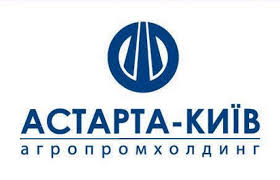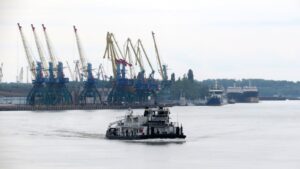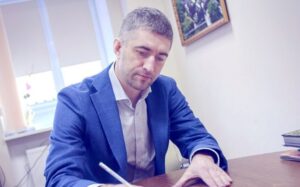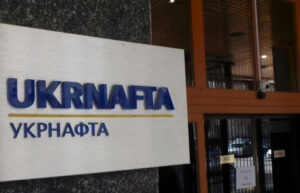
Astarta Agroholding cut its net profit by 5.0% to EUR61.9m in 2023, while its EBITDA fell by 6.1% to EUR145.77m, the company said in its annual report on Wednesday evening.
“EBITDA margin decreased by 7 percentage points (p. p.) year-on-year to 23%, reflecting lower crop prices, higher selling expenses and a change in the basis of supply in the sale of crops,” the document said.
According to it, Astarta’s revenue last year increased by 21.3% to EUR618.93m, gross profit by 7.8% to EUR223.59m, while operating profit decreased by 12.2% to EUR95.78m.
It is specified that the Agriculture segment contributed 39% of consolidated revenue or EUR240 million in 2023 (+33% y-o-y), while the Livestock segment contributed 7% of total revenue or EUR43 million in 2023 (+10% y-o-y).
Sales of the Sugar Production segment grew by 28% y-o-y to EUR199m and accounted for 32% of total revenue in the period under review, while the Soy Processing segment contributed 20% of Astarta’s revenue or EUR122m, unchanged y-o-y.
According to the report, export sales accounted for about 53% of consolidated revenue or EUR325m last year.
The lower gross profit growth is due to the lower effect of the revaluation of the fair value of biological assets in the cost of revenue (EUR60 mln in 2023 vs. EUR73 mln in 2022), reflecting cheaper commodities and changes in exchange rates.
It is indicated that in UAH terms, Astarta increased net profit by 11.9% to UAH2bn 452.81m in 2023 on revenue growth of 39.3% to UAH24bn 446.26m.
According to the report, cash flow from operating activities amounted to EUR91m vs. EUR39m in 2022 due to lower working capital outflows, while cash flow from investment activities increased 2.6 times to EUR40m, with the largest investments in soybean processing and sugar production.
Net financial debt (net of lease liabilities) declined by 10% last year to EUR39m, while net debt increased slightly by 3% to EUR156m due to higher lease liabilities of EUR118m vs. EUR109m in 2022.
As reported, Astarta reported EUR65.16m net profit in 2022, down 46.8% from 2021. The holding’s EBITDA decreased by 23.2% to EUR154.77m in the year before last, while revenue increased by 3.8% to EUR510.07m.
In 9M 2023, net profit decreased by 9.8% to EUR55.97 mln, while revenue grew by 14.8% to EUR392.00 mln. EBITDA decreased by 10.8% to EUR116.63 mln.
In UAH terms, Astarta increased its net profit by 6.9% to UAH 2 bln 219.11 mln in the first 9 months of last year, while revenue grew by 37.7% to UAH 15 bln 513.56 mln.

“Ukrainian Danube Shipping Company” (UDP) ended 2023 with a record profit of UAH 719 million, having eliminated its existing debt, the Ministry of Communities, Territories and Infrastructure (MinRestoration) reported.
“The company paid over UAH 140 million to the state budget, fulfilling its obligations to the state in full. Dividends amounted to almost UAH 216 million, which is a record figure for all the years of the Ukrainian Danube Shipping Company’s existence. At the same time, the company liquidated its existing debts,” the statement said.
The result was made possible mainly due to a single logistics service – combining freight with transshipment in Ukraine and Constanta. In addition, since the beginning of the full-scale invasion, there has been a high demand for river transportation, which takes place without intermediaries at market prices. The procurement system has also been structured and a large number of anti-corruption measures have been taken, the Ministry of Reconstruction noted.
“Ukrainian Danube Shipping Company has been steadily showing growth in all indicators. In addition to budget revenues, it is expanding its own capacities by modernizing the old fleet,” Deputy Prime Minister for Recovery and Head of the Ministry of Recovery Oleksandr Kubrakov was quoted as saying in the statement.
Kubrakov expressed his gratitude to the entire team of Ukrainian Danube Shipping Company for their work.

In January-March 2024, Ukrzaliznytsia (UZ) operated at a profit, UZ CEO Yevhen Lyashchenko said at a meeting with journalists, but did not specify the specific amount of the profit.
According to the presentation made at the meeting, in 2023, UZ’s net profit amounted to UAH 5 billion.
Among the key factors that had a positive impact on UZ’s financial results, the presentation mentions revenue from passenger transportation, which increased due to an 11% increase in passenger turnover (+1.42 billion UAH) a decrease in the cost of materials and repairs due to cost-saving measures, including the use of old materials (+UAH 4.81 billion), a more stable hryvnia exchange rate than initially expected (+UAH 4.53 billion) and the restoration of the usefulness of assets in the de-occupied territories (+1.88 billion).
In addition, the cancellation of the land tax liability for facilities in the occupied territories (+UAH 0.69 billion), reduction of the land tax rate due to the re-registration of land plots (+UAH 0.55 billion), and growth in revenues from auxiliary activities: security services by 25% and passenger services by 24% (+UAH 527 million) had a positive impact.
At the same time, UZ’s financial performance was negatively affected by a decline in freight revenue in 2023 due to the temporary suspension of the grain corridor and conventional restrictions on agricultural exports to the EU (-UAH 8.57 billion), as well as a salary increase to avoid staff outflow (-UAH 3.41 billion).
According to Lyashchenko, UZ transferred 50% of its profit in 2023 to the state budget in the form of dividends.
The UZ CEO also noted that the company continues to restore infrastructure damaged by Russian attacks at its own expense. In addition, as one of the largest electricity distribution operators, it has invested in the protection of substations and critical energy infrastructure.

PJSC Ukrnafta made a net profit of UAH 23.6 billion in 2023, the company’s CEO Sergiy Koretsky said on Facebook.
According to him, the independent audit of the financial statements was completed by Grant Thornton Ukraine on April 3.
“Dividends for last year are twice the cumulative result of the last 10 years. I never tire of thanking each and every person who works in the company, and I will emphasize once again that public administration can and should be effective,” Koretsky said.
As reported earlier, Ukrnafta’s financial plan for 2024 approved by the Cabinet of Ministers envisages net revenue of UAH 118 billion and net profit of UAH 18 billion.
In 2024, the company plans to start drilling 30 new wells, purchase equipment to stimulate production, and invest in upgrading its network.
“Ukrnafta is the largest oil producer in Ukraine and operates a national network of 537 filling stations, of which 456 are in operation. The company is implementing a comprehensive program to restore operations and update the format of its filling stations. Since February 2023, Ukrnafta has been issuing its own fuel coupons and NAFTAKarta cards, which are sold to legal entities and individuals through Ukrnafta-Postach LLC.
Ukrnafta’s largest shareholder is Naftogaz of Ukraine with a 50%+1 share. On November 5, 2022, the Supreme Commander-in-Chief of the Armed Forces of Ukraine decided to transfer to the state a share of corporate rights of the company owned by private owners, which is now managed by the Ministry of Defense.

Zhytomyrski Lasoshchy JSC, one of the largest confectionery producers in Ukraine, increased its profit by 80.7 times in 2023 compared to 2022, to UAH 395.087 million.
According to the company’s announcement in the NSSMC’s information disclosure system about the annual shareholders’ meeting scheduled for April 29, its assets increased 1.97 times to UAH 1.145 billion. The company’s debt obligations increased by 37.4% to UAH 628.8 million.
In 2023, Zhytomyrski Lasoshchy JSC’s revenue amounted to UAH 474.383 million, which is 16.8% more than in 2022 and 80.4% more than in pre-war 2021.
The company’s staff remained stable – 693 people, which is only 10 employees less than in pre-war 2021.
The shareholders are proposed to approve the net profit of the JSC, based on the results of financial and economic activities in 2022, in the amount of UAH 4.893 million and to allocate it in full to compensate for losses for the previous period.
The shareholders will also consider the new charter of Zhytomyrski Lasoshchy JSC and re-elect the Supervisory Board.
Zhytomyrski Lasoshchy Confectionery was founded in 1944. It is one of the three leaders in the confectionery industry of Ukraine. The company produces chocolate, praline, fondant, waffle and grilled sweets, various types of cookies, and sugar-free confectionery. The company is certified according to the international standards ISO 22000 and FSSC 22000, and has a Halal certificate. The company’s products are exported to 36 countries.

According to preliminary data, Eurocar JSC (Solomonovo, Zakarpattia region), which produces Skoda cars and is part of the Atoll Holding group of companies, ended 2023 with a net profit of UAH 37.25 million, which is almost 2.2 times less than in 2022.
According to the announcement of the annual shareholders’ meeting on April 30, as a result, retained earnings as of the beginning of 2024 increased by 16.5% to UAH 262.95 million.
The shareholders plan to use the net profit, as in the previous year, to replenish working capital, and not to accrue or pay dividends.
According to the publication, last year Eurocar increased its current liabilities by 85.4% to UAH 290.21 million, while its long-term liabilities increased slightly (by 3.2%) to UAH 1 billion 460 million.
Total accounts receivable amounted to UAH 707 million, down 22.7% over the year, while assets increased by 10.5% to UAH 2 billion 278 million due to a 2.5-fold increase in inventories to UAH 767.12 million and a 19.2% increase in cash to UAH 82.05 million.
“Eurocar has been producing passenger cars since December 2001. In June 2022, the plant resumed large-scale assembly (SKD) of Škoda cars, which was stopped with the start of Russia’s military aggression in Ukraine, but does not publish production statistics.
According to Auto-Consulting, in 2023, as in the previous year, Skoda cars took the fourth place in the rating of new passenger car sales in Ukraine, with an increase of 74.7% to 4.95 thousand units, while the market share increased to 7.61% compared to 7.08%.
According to the NSSMC, as of the third quarter of 2022, more than 68.84% of Eurocar’s shares are owned by Atoll Holding, whose beneficial owner is Oleg Boyarin, another 20% is owned by Prostir Capital LLC, and 10% by Iberia Motor Company of Poland.
According to Clarity-project, in 2023, the plant increased its net income by 73.6% year-on-year to UAH 4 billion 226 million.